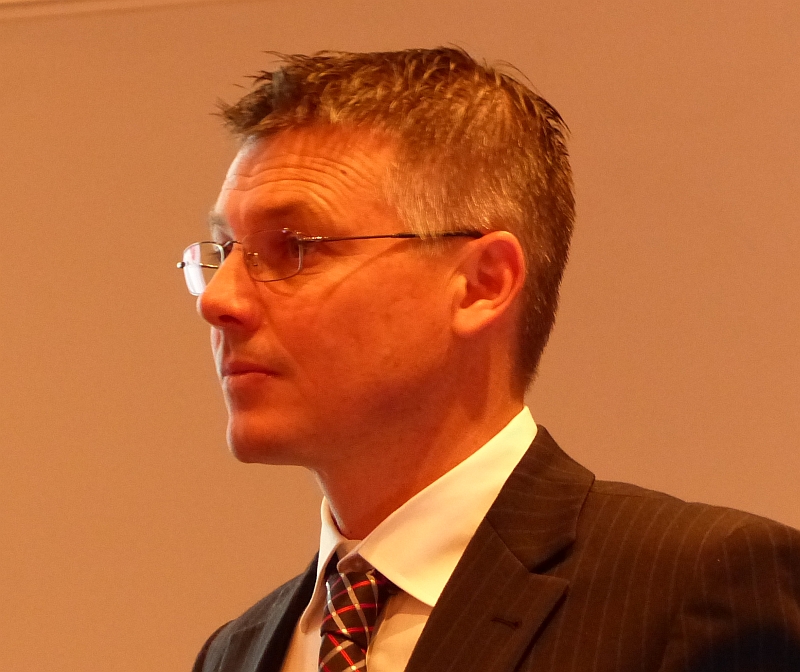Mycoplasma gallisepticum (MG) is an important infection of poultry worldwide, causing chronic respiratory disease in chickens and turkeys. Poultry CRC industry partner Bioproperties Pty Ltd has a live attenuated vaccine (Vaxsafe® MG) against MG in chickens that was developed by Professor Kevin Whithear at the Asia-Pacific Centre for Animal Health (APCAH). This vaccine has been used successfully across the globe. However, it does not work in turkeys. Moreover, worldwide, there are no live MG vaccines for turkeys.
Enter a Poultry CRC project (Sub-Project 1.1.7) led by Dr Greg Underwood (Bioproperties), Associate Professor Philip Markham and Prof Glenn Browning (The University of Melbourne). “This work is set to continue a previous collaborative project (Poultry CRC Sub-Project 1.1.6) between the University and Bioproperties that investigated the differences between the highly safe and effective Vaxsafe® MG ts-11 vaccine and wild-type MG strains in their colonisation characteristics in chickens”, said Greg. “The current Asia-Pacific Centre for Animal Health team led by Associate Professor Philip Markham and Anna Kanci at The University of Melbourne are world leaders in mycoplasma research. They identified an adhesion protein (GapA) that is needed for optimal colonisation of MG in turkeys, and then exhaustively screened clones from within the Vaxsafe® MG ts-11 vaccine to create a new vaccine that we’ve initially called MG ts-304. The APCAH team have since shown that the new vaccine expresses the GapA protein, which enhances its colonisation characteristics in turkeys, while retaining all of the safety and efficacy features that has made Vaxsafe® MG ts-11 so successful in commercial chicken flocks globally”. The team will build on the earlier work by conducting pre-registration trials that will allow Bioproperties to apply for a Minor Use-Minor Species (MUMS) Permit for MG ts-304 through the Australian Pesticides and Veterinary Medicines Authority (APVMA) for use in commercial turkey flocks in Australia.
Greg expounded the steps leading up to a MUMS permit, saying that “a series of studies will initially determine the most effective dose when the vaccine is given to three-week old turkeys by eye-drop. We’re using commercial turkeys that have been shown to be free of mycoplasma in this research project, so the results should be directly transferable to the field. We’ll then conduct a series of safety studies, including the effect of an overdose, and it will be passaged through turkeys several times to show that it does not become more pathogenic. We also need to look at where the organism colonises in the host and how well it transmits between turkeys. Given that MG ts-304 was derived from Vaxsafe MG ts-11, it should have features in turkeys similar to those we’ve seen in chickens, so once these studies have been completed we’ll assess the safety and efficacy under commercial conditions in a limited field trial as the final step before applying for the MUMS permit.”
Greg said “we’re aiming for a MUMS permit as a way of minimising the development timeline and costs”. However, before any pre-registration trials can commence at APCAH, Bioproperties must produce a fully GMP (Good Manufacturing Practice) compliant seedlot at its manufacturing facilities in Sydney. The seedlot will also be subjected to a panel of special tests to ensure that it meets the regulatory requirements. Bioproperties will then need to optimise the vaccine growth and storage conditions to ensure the development of a commercially-viable manufacturing method to minimise vaccine production costs and thus pricing to the market. Greg added that “we’re also working to develop this vaccine in a freeze-dried format, which will greatly assist transport and storage compared to the Vaxsafe MG ts-11 vaccine that has to be held frozen at -70C”.
“This is a perfect project for the Poultry CRC. It originally arose from a direct need of an end-user, however, with the registration process for new vaccines taking over five years, without the Poultry CRC this project would not be possible” said Greg. “Ultimately we’re looking for a long-term solution to this local industry problem, but with potentially a global market. It’s also aligned with the common strategies of Bioproperties and the Poultry CRC to reduce antibiotic usage in food animal production. Vaxsafe MG ts-11 has shown this across the globe, so we’re confident MG ts-304 can also achieve this in global turkey production, enhancing the sustainability of poultry production as the number one human protein source. Therefore there will be a benefit to consumers,as well as an economic benefit to producers with respect to decreasing costs and increasing productivity”, concluded Greg.



